Interview: Joseph McGrath, Artistic Director of Tucson's Rogue Theatre

in The Secret in the Wings 2019
As you walk into The Rogue Theatre, you are greeted by giant puppets and painted
Renaissance tapestries. The aroma of freshly baked chocolate chip cookies fills the snack bar. An enthusiastic crowd gathers on the colorful Mexican tile in the historic lobby.
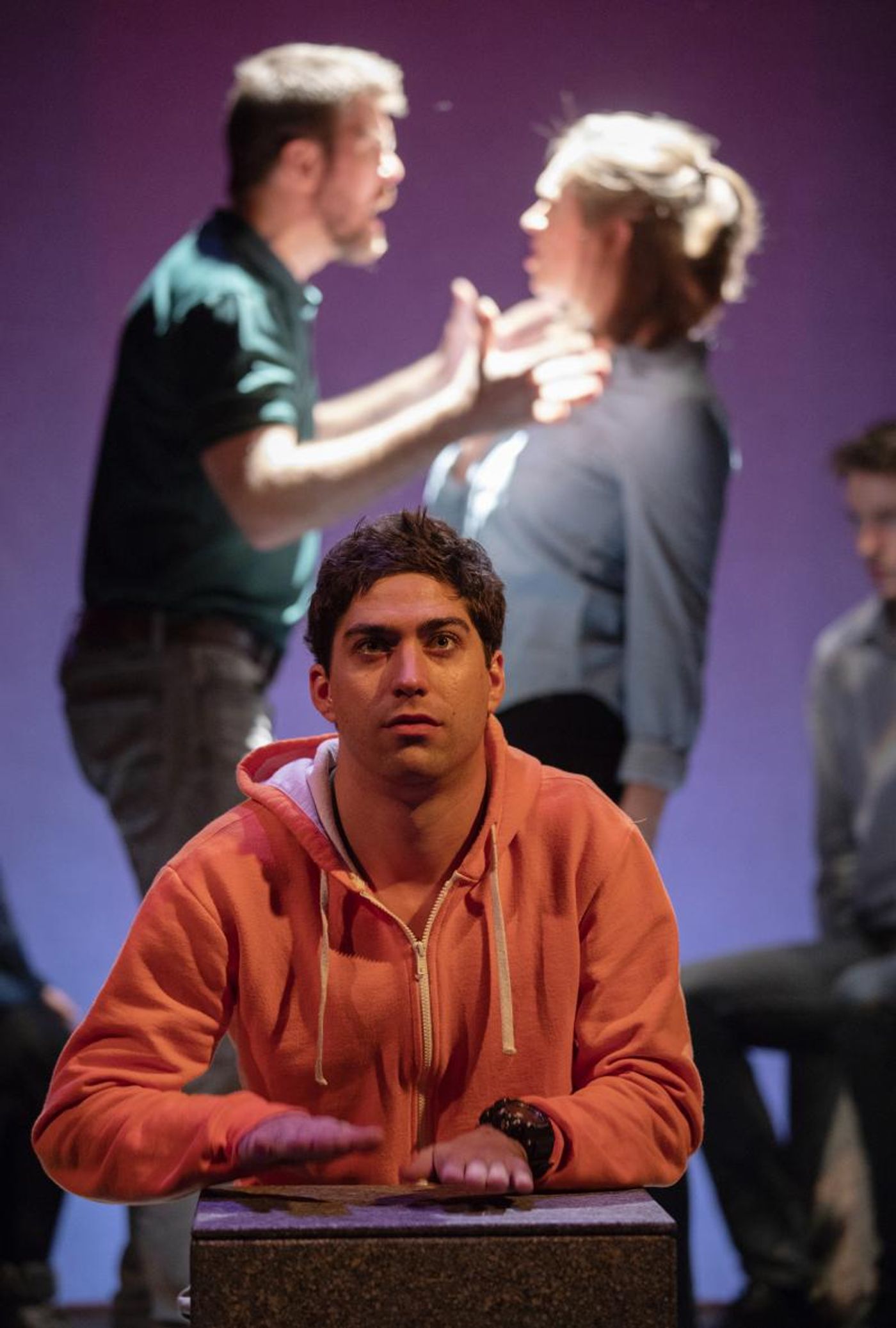
The Curious Incident
of the Dog in the Nighttime 2018
When Joe McGrath and Cindy Meier began The Rogue Theatre in 2005, they wanted to spend the rest of their lives with the world's greatest authors. They wanted to produce theater that explored essential questions of human existence. And they wanted to find a group of people who longed to share these meaningful stories.
Fifteen years later, The Rogue Theatre is going stronger than ever.
The Rogue Theatre is an intimate 160-seat Actors' Equity Small Professional Theatre in the heart of Tucson. The theater is housed in The Historic Y, adjacent to a large parking lot.
Post-show discussions are held after every performance. The Rogue won the 2012
American Theatre Wing (founder of the Tony Awards) National Theatre Award.
Jeanmarie Simpson: So, tell us, Joe. What's something about yourself and/or your company that others may be surprised to know?
Here's something that our subscribers might be familiar with, but others might be
surprised to hear. The Rogue has no sound system to speak of. This is not a
matter of being cheap, but a matter of creative discipline. Our patrons have heard
our thunder sheet and wind machine, and most importantly our live musicians generating the music nightly in the room. It keeps us honest, we think, in keeping
live performance live.
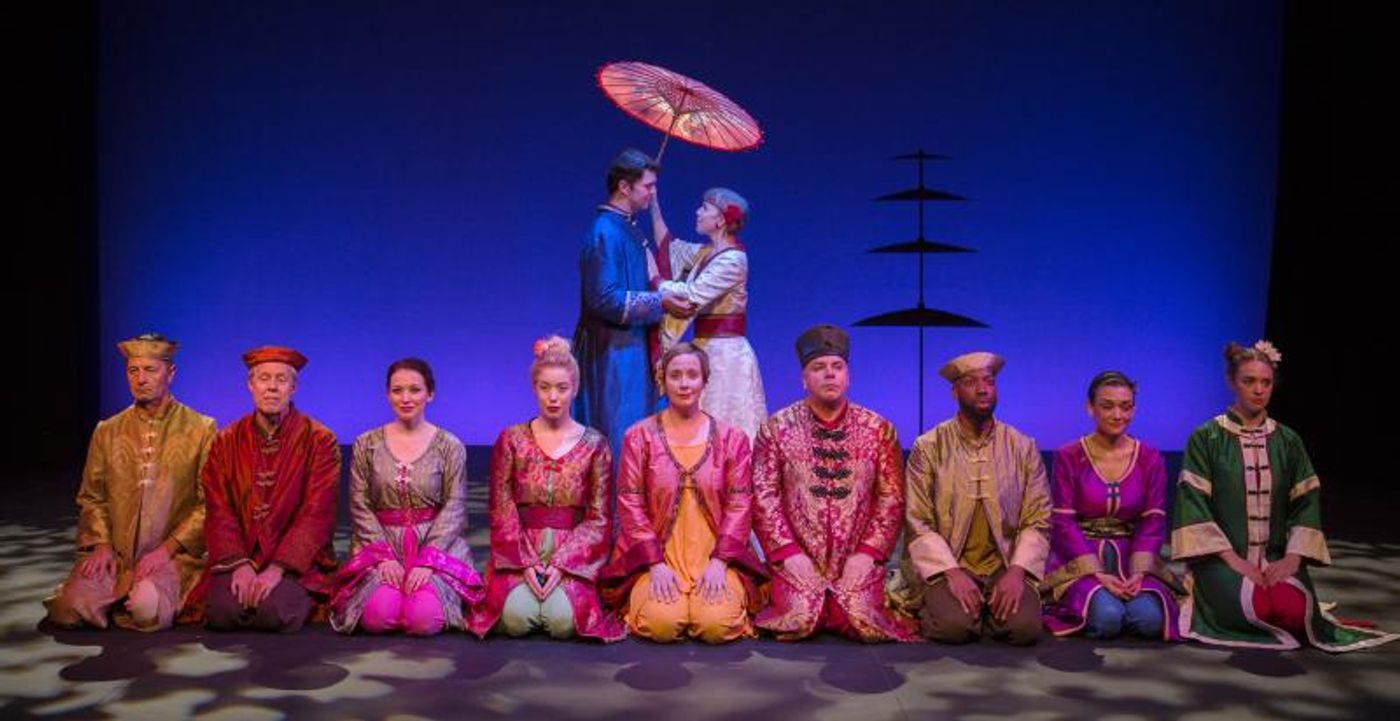
If there were something in the company's past you were able to go back and do differently, what would that be?
Boy, that's a hard one. We are embarking on our 15th season with a full Actors'
Equity Small Professional Theater contract.
I assume by "full," you mean that you cast 100% union actors. SPT allows for 50% non-professional casts. It's a great contract for theatres larger than 99 seats and smaller than 350.
We have over a thousand season subscribers and a robust donor base. To regret anything on the path to this place might seem a bit ungrateful. There have been a handful of plays that we've produced out of our 68 productions that were not quite of the literary quality that we had hoped. But all of our mistakes taught us a great deal and brought us to this place. What can I say?

in Waiting for Godot 2015
Please tell me about a time you had a difficult working relationship with a colleague. What was the challenge, how did you address the situation and what did you learn from the experience?
Believe it or not, we go to great lengths, my partner and I, to keep difficult personalities out of our room. We have often passed up very talented artists to avoid clashes in our theatre. It's always been important to us to have a supportive and pleasant atmosphere in rehearsal. They call what we do "plays", which seem to imply that it should be fun, so fun is a professional responsibility, we think.
There are always difficult moments, to be sure, but they're not important. They're simple momentary failures of human sociability.
Please tell me about a time your greatest skill/s didn't work for you - a moment in your work with the Rogue that you consider your biggest failure.
.jpg?format=auto&width=1400)
There was an important lesson I learned playing the role of Iago in Shakespeare's Othello. In one scene, it was my effort to drop the poison of doubt gently into Othello's ear, but I could never find the mode of doing that that filled the room. I have some of the best vocal training available, yet I didn't manage to figure it out.
The scene defeated me, ultimately. If I were to approach it again, I'd remind myself that Shakespeare's company originally performed this scene in the open air before more than a thousand, most likely. If they could drop these doubts in Othello's ear on that scale, so could I. Audiences can imagine a great deal. We actors need not underestimate their ability to sense the delicacy of the moment.
What do you consider your greatest success?
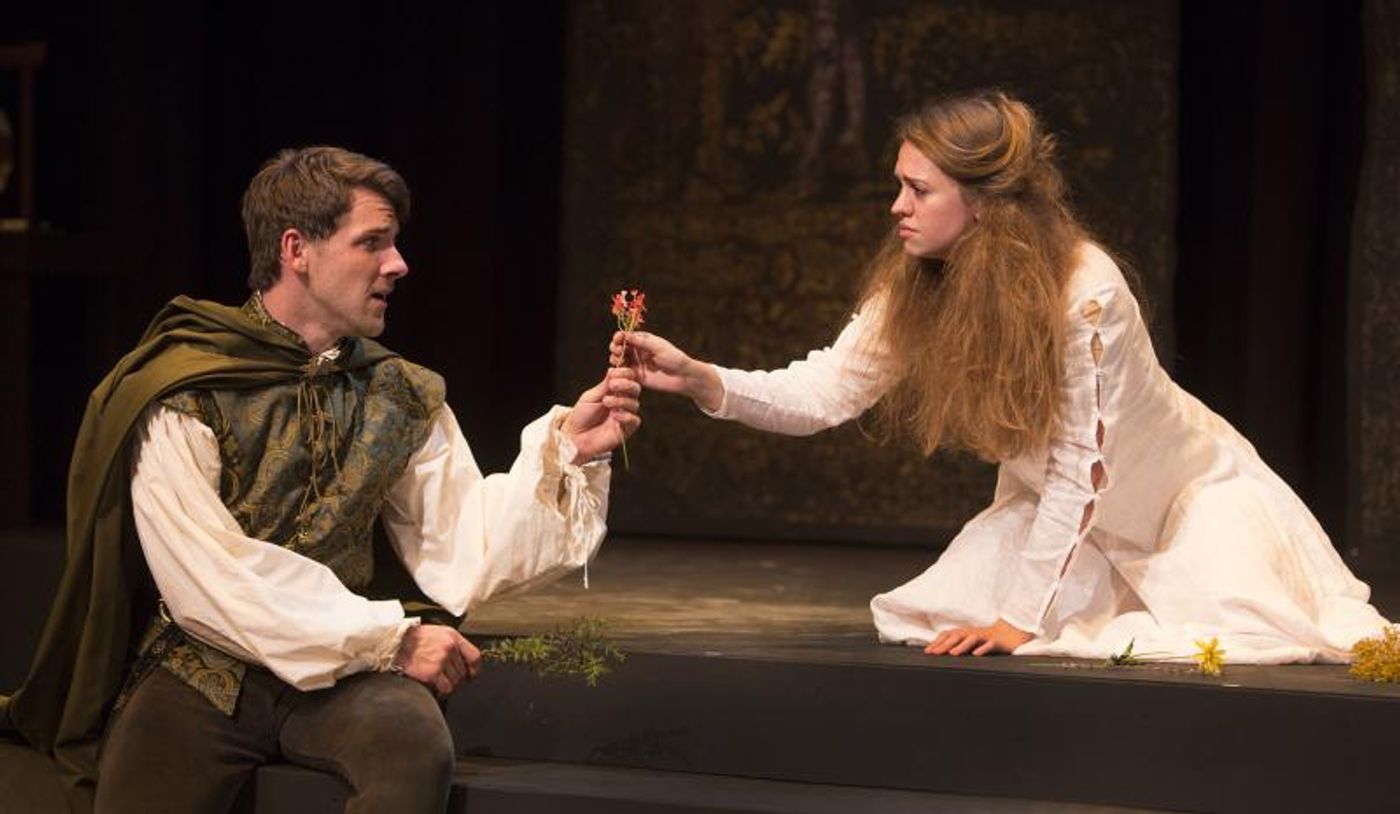
in Hamlet 2015
Probably our most effective production, in emotional impact for our audience and in bringing us donors, board members, and critical help in building the company was The Goat produced in 2008. So many of the most important support for the Rogue began there, and made it possible for us to move into our present space and set us on this successful trajectory. Additionally, we found that the conclusion of that play was so devastating that much of our audience simply sat in the house stunned. We decided that we needed to have a post-show discussion to help them decompress. We have continued with that ever since then. The Rogue has a discussion after every performance now. A favorite of our audience, many of whom look forward to hearing from their fellows.
What is your ideal role or directing project and what do you love about it?
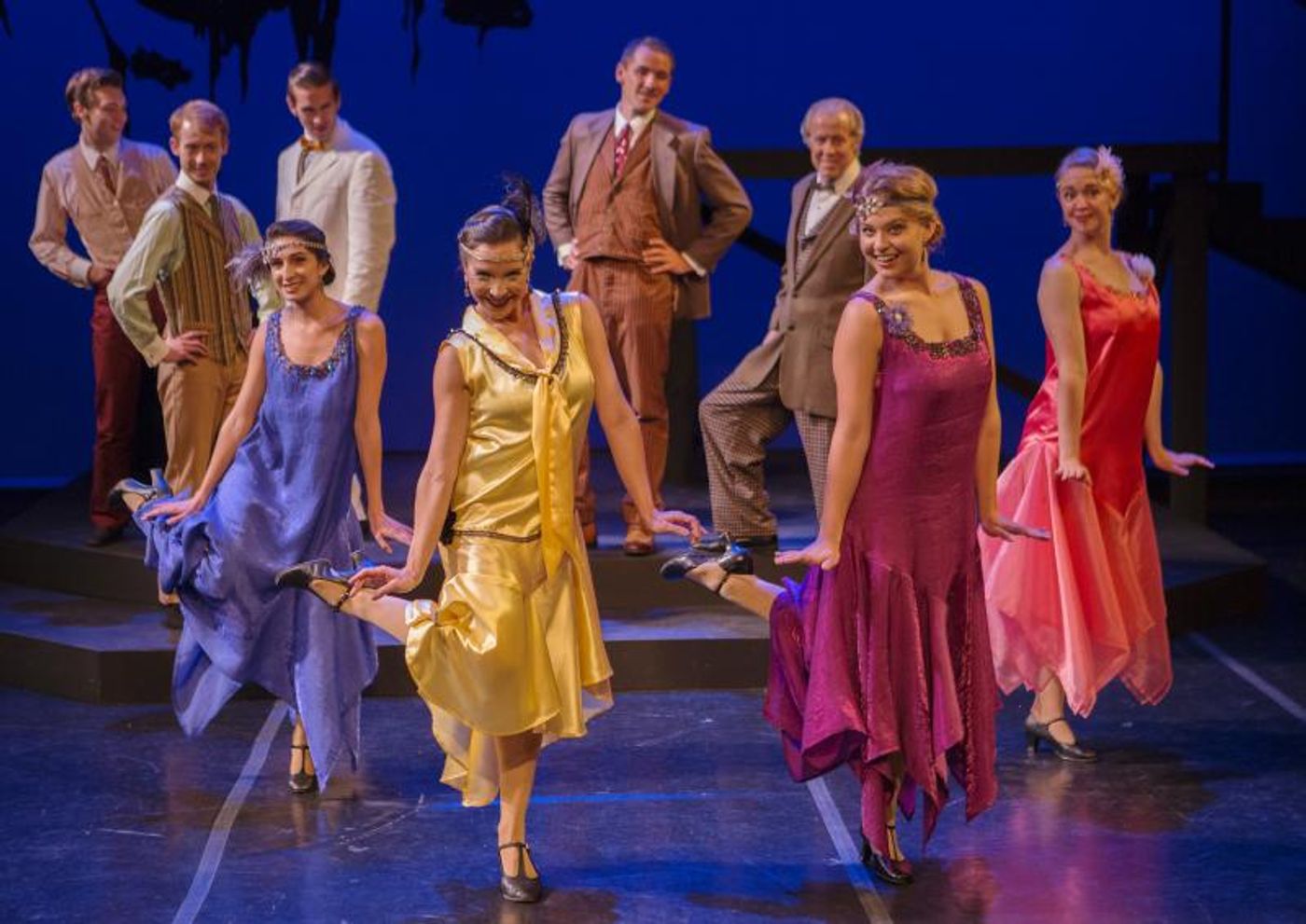
I was surprised to find that our production of Uncle Vanya was so much fun. Such melancholy joy. We took Chekhov at his word that Uncle Vanya was a comedy. That we not so much mock the characters of Serebryakov's estate as much as laugh at our own loneliness and unrequited loves. The smallness of our dissatisfactions. The silly postures of our self-importance and sufferings. It was a very creative process.
What were your greatest challenges when you started out as a company and how was that identified?
We found, a few years into this enterprise, that audiences do not consider a theatre company a "who," but a "where." It eventually came clear to me and Cynthia that if we really wanted to expand our following and keep it expanding, we needed a permanent home.

(masks by Aaron Cromie)
in Galileo 2018
What did you do?
In 2009 we moved into the Historic Y at University Blvd. and 4th Ave. It has been a perfect venue for us. We've transformed it into an intimate black box theatre, and we are constantly reconfiguring the audience placement and the stage to meet the needs of each production. The Rogue is now a "where" as well as a "who."
What do you consider the Rogue's most satisfying accomplishment?
I think our most impressive feat is the success we've had with the repertoire that
we've chosen to do. Authors like Pinter, Beckett, Chekhov, Shaw, Genet, Albee,
Wilder, Woolf, and Joyce. These are not names that one would enlist for full
houses and a large season subscriber base. Nevertheless, we've found the audience
for them. It speaks, I hope, to the quality of our work, and the effectiveness of our
outreach.
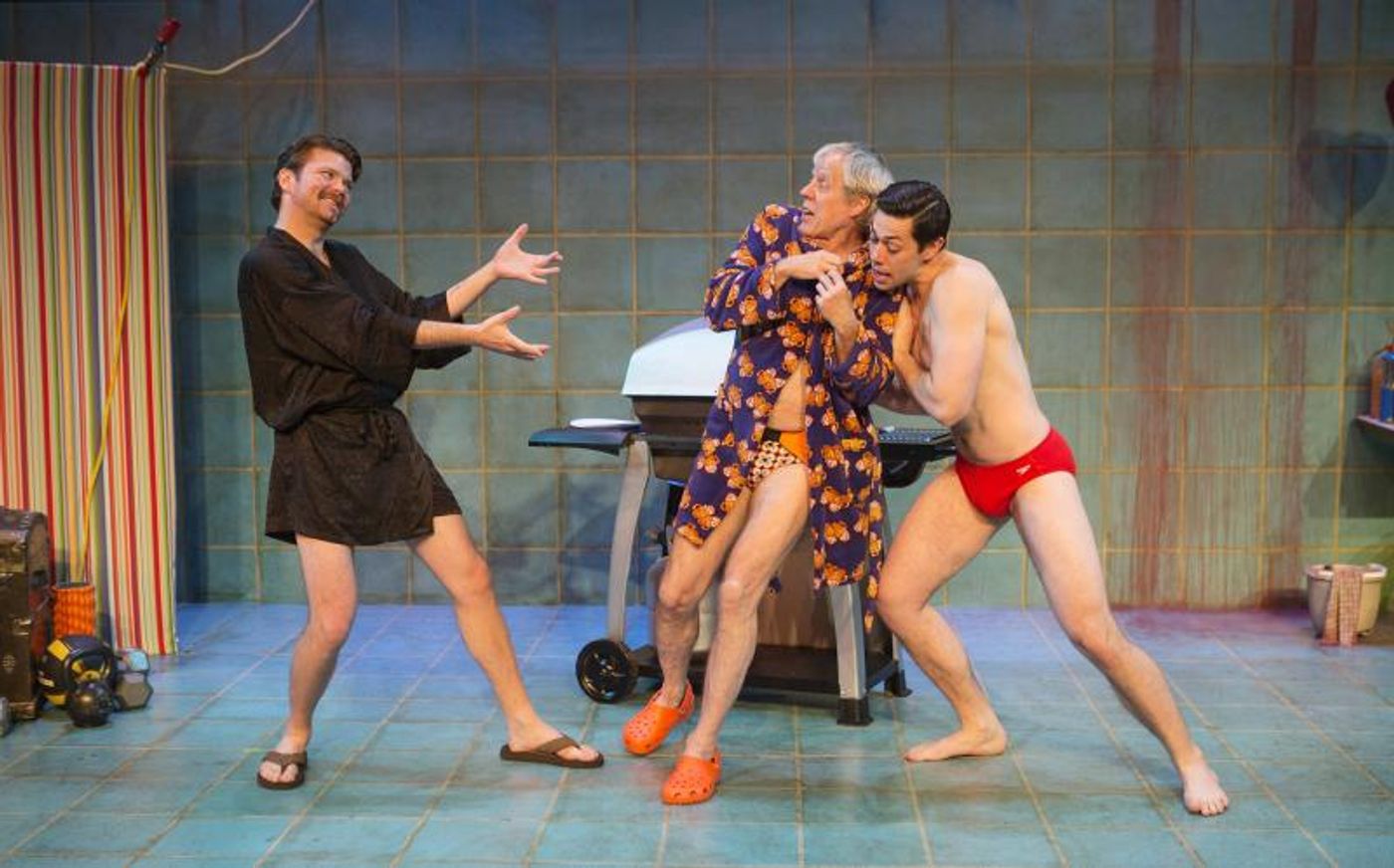
and Matt Bowdren in Penelope 2017
Can you share your favorite project - something you've collaborated on most successfully by your definition?
Well, we hope every project is a collaboration with all our artists. What is unusual, perhaps, are the collaborations we have with our musicians. Our Richard III was staged with the music of Odaiko Sonora, the taiko drum ensemble here in Tucson. Under the guidance of Paul Amiel, their repertoire nestled beautifully into the tense, martial atmosphere and gathering menace of Richard. What in silence might have been arresting became explosive with Japanese drums. And it was another important production for us that built a respectable portion of our audience.

and Holly Griffith in Macbeth 2017
What are you working on now?
I am right now working on James Tyrone in Long Day's Journey into Night, both general research, and the nuts and bolts of getting the lines and scenes into my head. Since I'm the set designer at the Rogue, I'm also building and overseeing the set for Middletown, which plays in the middle of July. I'm also giving some thought and setting up ground plans for Long Day's Journey into Night, and getting ahead on some of the effects we anticipate having to put together for Blithe Spirit. We're busy here, even in the idle summer.
.jpg?format=auto&width=1400)
What are the biggest challenges that you see impacting the industry today?
What to do with technology and the imposition of screens and digital media on our
expectations of entertainment and a potential challenge to the life of our art form?
Live theatre actually presents audiences with much more challenging conceits and
symbols than anything they'll see in digital media. Yet younger generations are becoming less accustomed to absorbing live entertainment unmediated by screens and digital intrusions. It's not an insurmountable problem, by any means. There is tremendous support in our audience for bringing younger people into the theatre, and we're having some success in that regard. I'm positive, but I'm also unsure of where we are headed with digital technologies and what they mean for our industry and the larger culture. Our challenge, I suppose, is to be adaptive to what comes along without giving up the wisdom and glories of the past.
Thanks for this, Joe. Salud!
Learn more about The Rogue Theatre here.
Videos

